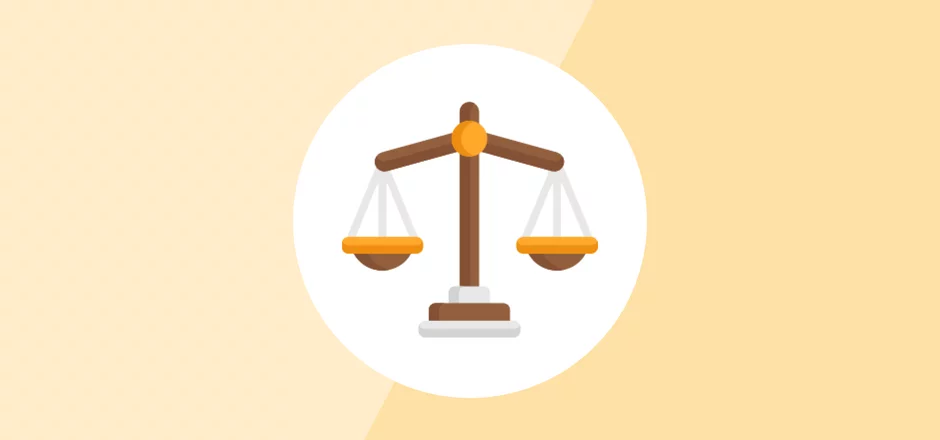How To Represent Yourself In Family Court
If you plan to represent yourself in family court, there are a few things you can do to prepare.
According to a survey in California, 67% of people opted to represent themselves while resolves a family law matter.
If you find yourself involved in a legal family matter and don’t have the money for legal counsel, you may be interested in learning how to represent yourself in family court. This is known as “pro se” legal representation.
Today, we’re taking a closer look at a few things you should consider, including hiring a lawyer for limited scope representation. This will ensure you have the best possible legal strategy in place while resolving your family law matter.
Here’s everything you need to consider before getting started.
How To Represent Yourself In Family Court
You might be worried about possibly losing custody of your children or losing child support. You may be facing divorce or separation involving the division of property. You are looking at the possible legal action in cases like these. You may be thinking about going to court on your own to defend yourself. Is this wise? Is this even permitted? What are the rules you need to know to make the right decision?
Do you need a lawyer? Do lawyers handle everything for you? Do they charge a lot? Can you ask a lawyer to help you just “here and there?” How flexible are lawyers and law firms?
Actually, many lawyers offer unbundled services where they will handle some parts of your case and you can handle the others. This is known as “limited-scope representation” and it might be the best compromise for you in guiding your case through the court system at a lower cost than full representation.
Limited-scope services
There are many services lawyers can offer in a limited-scope agreement.
They can offer to consult and give you legal information and advice when you need it and ask for it. In some ways, they can serve as your coach to prepare you for what is expected and what you should do. They can also prepare documents and forms for you and allow you to file them with the court and represent yourself at the hearings.
You may want legal representation in certain cases like child custody or child support but choose to represent yourself in other matters. If your case is somewhat complex, you may want a lawyer to handle the more difficult parts of legal research or discovery.
Having a lawyer represent you, even in part, will give you confidence and provide you with the resources you need at a lower cost than full representation. You keep more control over your case this way rather than turning it all over to the lawyer. The lawyer can spend time on those aspects of your case that you don’t have the time or legal knowledge to do it.
If you decide on limited-scope representation, you need to work out some issues with your attorney. What strategy will be followed? Who will gather the information needed? Who will prepare the forms and reports needed by the court? Who will negotiate with the other side in the case? And who will appear in court for proceedings and settlement conferences?
You and your lawyer may disagree on some decisions, and if this happens, you should listen to your lawyer and his or her reasons before deciding. In the end, you are responsible. You can disregard the attorney’s recommendation but in doing so, you have to accept responsibility for the outcome.
If you are considering limited-scope, there is a form that you and your attorney can fill out. It’s called a “Limited Scope Representation Agreement” and spells out just what you and your attorney are agreeing to.
Representing yourself
There are some alternatives to going to court. These include alternative dispute resolution measures like mediation of arbitration. Third-party involvement like this can be less costly than going to court and it may solve your dispute without further escalation.
If you decide to represent yourself, make sure you read about the law(s) that applies to your case. You can learn more about the law in the California Code of Civil Procedure and the California Rules of Court. You can do some research at the local public law library. You can ask for assistance at your court’s self-help center. The court may also have a family law facilitator or small claims legal advisor whom you can contact for advice and counsel.
Keep careful track of all the deadlines in your case, especially those for filing papers and serving the other side. Make copies of all papers you file and all papers you are served with by the other side.
Prepare any material you want to show the court, like photos, letters, or documents by marking them with labels like Exhibit 1, etc. and keep them organized.
Visit a courtroom, preferably the one that will hold your hearing, and observe some cases. See how the parties act, where they sit, how they talk to the judge, etc. When it’s your turn in court, act professionally and show respect for the judge, the clerks, and others in the room.
Hiring a lawyer
Limited-scope is often the best choice for many clients. But there are times when it may not be a good choice, like when a case may be very technical or very complex. There can also be time-sensitive issues where a working person might have difficulty arranging a work schedule to accommodate court requirements. In these cases, it might be better to have full representation.
The goal of child custody cases is to do what’s right for the children. Court hearings are high risk, high reward (or high failure). Deciding to go it alone may not be the best strategy with so much at stake.
If hiring an attorney is an option for you, consider your financial resources first. The retainer for a child custody attorney can be expensive. It depends on the state where you live and how many hours might be involved. You should ask about anticipated costs up front.
You should also weigh the complexity of the case to see how difficult it might be for you to meet all court requirements. If you feel unsure about your ability to handle all aspects of the case, you should definitely consider an attorney for at least part, if not all, of it. The attorney will be up to speed on state laws and will be a good representative for you in child custody hearings.
You should consider the attorney’s reputation based on previous child custody cases and how often the attorney won them. Ask for references. If you don’t know where or how to find a family attorney, go to an attorney referral service.
In the end, it’s your choice
It’s your decision whether to try mediation, represent yourself in court, hire a full-time lawyer, or go with limited-scope representation. You can get more advice on the right direction from a certified attorney referral service that has experience in all of these areas. This service will help you choose what is best for you personally, and if a lawyer is recommended, you will get a list of qualified attorneys you can investigate further.
Are you in search for a certified attorney to represent you?
Let us help you find one today!


